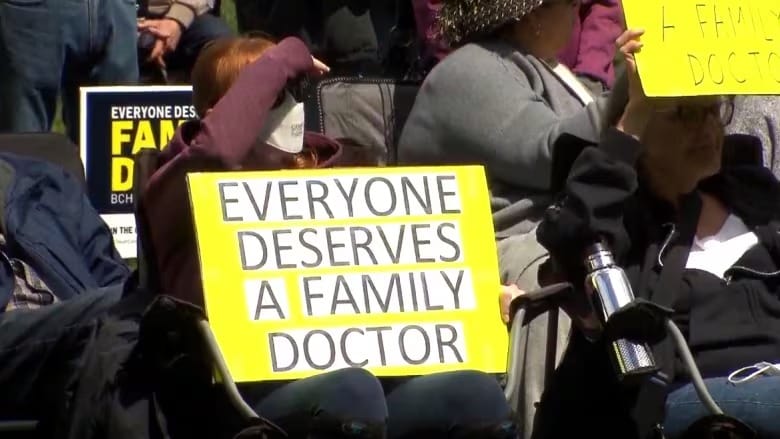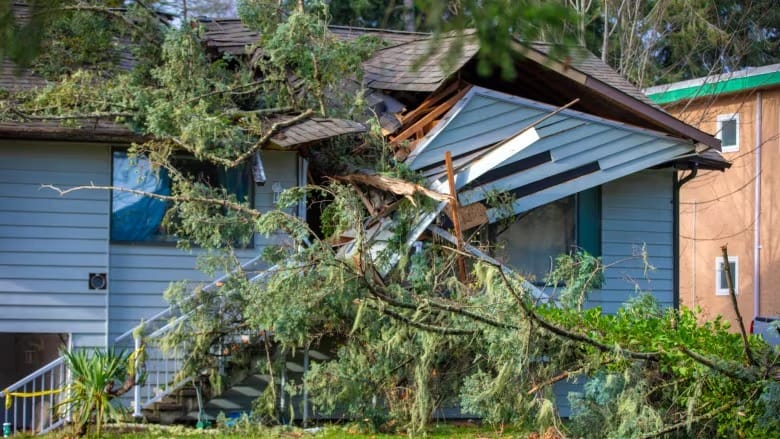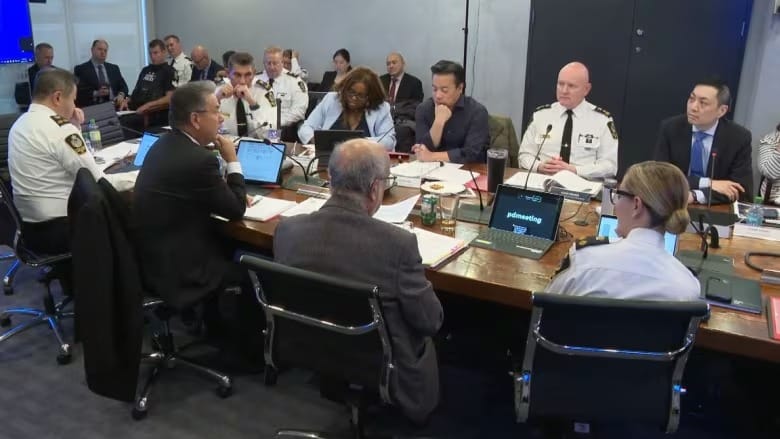B.C. election comes at pivotal moment for health care: workers
Doctors, nurses, technicians want finances, staffing levels to match campaign promises

All three major political parties in British Columbia are pledging to expand health care, but frontline workers emphasize that whoever forms the next government must align funding and staffing with their proposals.
With the campaign in its final week, polls show health care is the second most important issue for voters, trailing only the cost of living and ranking ahead of housing affordability and availability.
Health-care workers stress the need to sustain progress on solutions. "We've … seen really divergent views on what the future of health care in our province should look like," said Devon Mitchell, a Vancouver emergency physician and advocate with Canadian Doctors for Medicare. "That's why this is such a consequential election for B.C."
Many residents face difficulties finding family doctors or receiving timely treatment for serious illnesses. "It’s really about shortages and the challenges of hiring, retaining, and recruiting the staff who keep these systems running," said Kane Tse, president of the Health Sciences Association, which represents 23,000 workers, including pharmacists and technologists.
Organizations representing 50,000 nurses and 16,000 physicians, residents, and medical students in the province echo similar concerns, saying that years of underfunding and poor recruitment have left hundreds of thousands of British Columbians without access to a family doctor or critical care.
Maryam Zeineddin, president of B.C. Family Doctors, warned that "when family doctors are not properly resourced or supported, it impacts the quality of care that patients receive." Adriane Gear, president of the BC Nurses' Union (BCNU), added, "Decisions made in the early 2000s to underinvest in nursing schools and health care have contributed to the situation we face today."
Each party has outlined extensive health-care plans, promising to connect more residents with doctors or nurse practitioners, increase staffing, and build new health-care facilities. They are also pledging to spend hundreds of millions more beyond the nearly $33 billion already allocated to health care in the province's $89 billion budget, which is forecast to run a $9 billion deficit.
Despite increased spending, B.C. has struggled to improve wait times in some areas. According to the Canadian Institute for Health Information, nearly 90% of cancer patients accessed radiation therapy within target timelines in 2021, but those numbers declined in 2022 and again in 2023.
Voters may find it challenging to sift through the detailed health-care plans in the three party platforms, especially with the Conservatives releasing theirs just four days before election day.
The NDP is campaigning on its record, citing accomplishments like connecting 248,000 people with physicians over the past year. The Conservatives and Greens, meanwhile, are attempting to tap into voter frustration.
"I don't blame patients for being frustrated," said Mitchell. "If I take my son to the emergency department because he broke his arm, and it’s closed, I'm going to be angry and want change."
The NDP promises to continue recruiting and training more family doctors and nurse practitioners to connect 160,000 residents with care over the next six months. The Conservatives propose a new model combining public and private facilities, all publicly funded. The Greens advocate for a "Dogwood Model," which would connect residents with care through 93 community health centres across the province.
The NDP also touts plans for 29 new hospital or expansion projects. Meanwhile, the Conservatives promise to build a new Children's Hospital in Surrey, expand the Nanaimo Regional General Hospital with a new tower (also promised by the NDP), construct a new patient care tower at UHNBC, and add a new maternity ward at Mission Memorial Hospital.
The NDP estimates that 45,000 new health-care workers will be required, recruited from other regions and through expanded training programs.
Some health-care professionals have expressed support for the NDP. An open letter from 24 Surrey doctors acknowledged "significant progress" on projects such as a new regional cancer centre and long-term care beds, expressing skepticism over Conservative promises.
Nurses, meanwhile, are calling for the next government to implement a nurse-to-patient ratio plan currently under development, such as one nurse per three patients in emergency rooms. According to Gear, both the NDP and Greens have committed to this standard, but the Conservatives have yet to respond.
"We need policies that ensure patients get the care they need and create working conditions that retain and attract nurses to this beautiful province," Gear emphasized.





